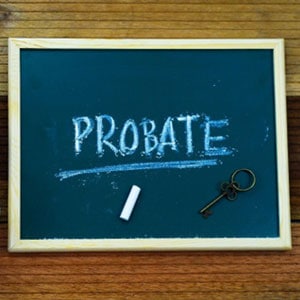
Estate planning is often equated with preparing for death. While a good estate plan certainly will determine what happens to your estate and legacy after you die, there are a number of vital estate planning documents that can impact your life before you pass away, especially concerning medical decisions. This article explains some of these key documents you need and why estate planning can be vital even when death is the last thing on your mind, including: What medical estate planning documents every North Carolinian should draft? What is the purpose of medical estate planning, and when will it be useful? How often should you review and update your medical estate planning documents? What Is The Purpose Of Including Medical…Read More

Visitation And Custody Arrangements In A North Carolina Divorce Visitation and custody arrangements during a divorce are typically established through a temporary custody order. As the name suggests, this temporary order is meant to provide a framework for custody during the period while family law issues are being resolved. Typically, these arrangements remain in place for about a year, during which time the court expects the parties to finalize the custody matters. These temporary arrangements often involve various schedules. Some common options include a 50-50 arrangement, where children spend equal time with each parent, such as a week-on, week-off schedule. Alternatively, the court may call for a two-two-three schedule, allowing for flexibility and accommodating unknown variables. In some cases, one…Read More

Movies and television often make wills seem exceedingly simple. A few lines, maybe handwritten, and bam, your last will and testament is all done. The truth, however, is that a properly drafted and thought-through should be given more of your time and consideration; after all, the impact could be extensive on your family, friends, and legacy. This article focuses on wills as an estate planning tool in North Carolina and covers important questions such as: What can be addressed in a will (and what cannot)? The responsibilities and role of the will’s executor and how to choose one. When to make changes and how to make your will available to those who will need it? What Is A Will? A…Read More

Common Family Law Scenarios That Necessitate Professional Legal Guidance Many of the individuals who reach out to us with questions about divorce and separation have been mulling over these decisions with their partners or spouses for a considerable period. On rare occasions, we encounter cases where something has just transpired and prompted them to seek advice about separation or divorce for the first time. However, more often than not, these are situations that have been brewing in their minds for quite some time. They come to us seeking guidance to bring their thoughts into focus and to clarify the steps involved in this process. Custody matters tend to have a greater sense of urgency than divorce or separation. About half…Read More

When it comes to determining what happens to your property, wealth, and belongings after you pass on, estate planning is the only path to impose your will. By working with an attorney to design and draft estate planning documents and tools, you can ensure that your legacy is protected and purposeful. However, there are many estate planning concepts most North Carolinians need to become more familiar with, ranging from the probate process to the use of trusts. This article helps close that gap by answering several advanced questions about the estate planning process, including: What the probate process is, what assets are affected by it, and when it is required. What you need to know before starting the estate planning…Read More

In this article, you can discover: The distinct types of theft charges under North Carolina law. The differences between shoplifting, larceny, and burglary. Potential defenses against theft charges and the possibility of expungement. What Are The Different Types Of Theft Charges Recognized Under North Carolina Law? In North Carolina, various theft-related charges include larceny by trick, misdemeanor larceny, felony larceny, embezzlement, and obtaining property by false pretense. What Is The Difference Between Theft, Larceny, And Burglary In North Carolina? Larceny is the act of trespassing to take someone else's property with the intent to deprive them of its use permanently. On the other hand, burglary involves breaking and entering a house during nighttime to commit larceny. Essentially, burglary encompasses larceny,…Read More

In this article, you can discover: What constitutes burglary under North Carolina law. The key differences between first and second-degree burglary charges. How the persecution proves a burglary conviction and potential defenses. What Is The Definition Of Burglary In North Carolina? Under North Carolina law, burglary is defined as trespassing or breaking and/or entering into another's dwelling house or sleeping apartment at night with the intention to steal or commit a felony. This means that the crime must take place during nighttime hours in a residence. For example, if someone lives above their gas station, breaking into that gas station can be considered as breaking into a house. If the act occurs during the day, it is termed as breaking…Read More

In this article, you can discover: The main differences between drug misdemeanors and felonies in North Carolina. Options for first-time drug offenders to dismiss their charges. The value of having local legal representation even when pleading guilty. What Are The Most Common Types Of Drug Charges In North Carolina? In North Carolina, the most frequent drug charges we address involve possession and possession with the intent to sell, manufacture, and deliver. These charges encompass a variety of drugs including marijuana, cocaine, and multiple drug schedules, with schedule two and three drugs, like cocaine or certain prescription medications, being especially prevalent. How Is A Drug Charge Classified As A Misdemeanor Or Felony In North Carolina? The primary factors are the quantity…Read More

The police know that a crime was committed. They believe that you did it. However, they have no evidence. Can they still arrest you? Technically, they should not. After all, an arrest requires probable cause. You get probable cause by examining the evidence. The laws are a bit vague — there is no set “amount” of evidence police officers need, for instance, so whether or not they had probable cause can look different from case to case — but the idea is that evidence comes first, establishes probable cause, and then they make the arrest. That doesn’t mean that the evidence will hold up in court, of course. Maybe an eyewitness made a statement that the police used as evidence.…Read More

Criminal courts have a duty to sentence an individual to punishments that fall in line with the seriousness of the crime for which the person was convicted. There are many different factors that go into these decisions, and the judge must consider them all. If you’ve been convicted of a crime, you should understand what points might be utilized to determine what sentence you will face. One of the first things that a judge must look at is the sentencing guidelines for the specific crime. Some crimes have mandatory minimum sentences that must be handed down. In other cases, judges have more discretion but there are usually sentence ranges and specific options that they can review. Some other factors that…Read More